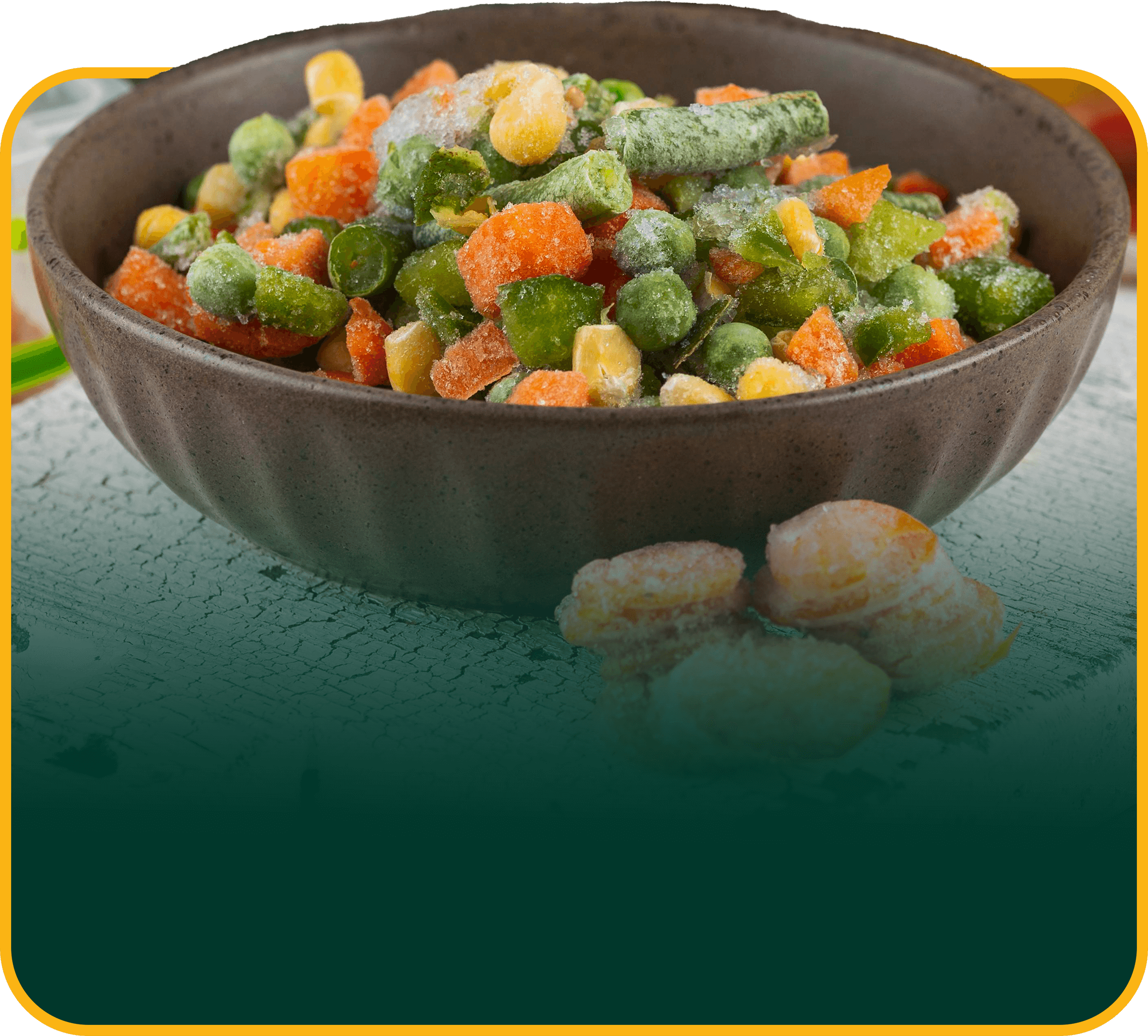

Processed meat
Processed meat refers to meat that has been modified through techniques like curing, smoking, salting, or adding preservatives to enhance its flavor, extend its shelf life, or improve its texture. Examples include sausages, bacon, ham, and deli meats. Although processed meats provide convenience and a range of flavors, they often contain added sodium, nitrates, and other preservatives that can have health implications if consumed in large quantities. Research has linked high intake of processed meats to an increased risk of conditions such as cardiovascular disease and cancer. Thus, while these meats can be enjoyable and convenient, it’s best to consume them in moderation and include a variety of fresh, whole foods in your diet.

Frozen vegetables
Frozen vegetables are a practical and nutritious option for adding fresh produce to your diet year-round. They are typically harvested at peak ripeness and quickly frozen to preserve their flavor, texture, and nutritional value. This process helps lock in essential vitamins and minerals, such as vitamins A and C, fiber, and antioxidants. Frozen vegetables offer convenience by reducing preparation time and extending the shelf life of produce, making them a versatile addition to meals. They are also often more affordable than their fresh counterparts, especially when certain vegetables are out of season. While frozen vegetables are generally as nutritious as fresh ones, it’s important to check for added salts, sugars, or sauces that can impact their health benefits. With proper storage and minimal processing, frozen vegetables provide a convenient way to maintain a balanced diet and enjoy a variety of flavors throughout the year.

Frozen Fruits
Frozen fruits are a convenient and nutritious way to enjoy a variety of fruits year-round. They are typically picked at peak ripeness and rapidly frozen to lock in their natural sweetness, flavor, and essential nutrients, including vitamins, minerals, and antioxidants. This process helps maintain the fruits’ quality and makes them a versatile ingredient for smoothies, desserts, and baking. Frozen fruits offer the advantage of extended shelf life and can be more affordable than fresh fruits, especially when certain varieties are out of season. They also reduce food waste by allowing you to store fruits for longer periods without spoilage. To maximize their health benefits, it’s important to choose frozen fruits without added sugars or syrups. With their convenience and retained nutritional value, frozen fruits provide a delicious and practical option for maintaining a healthy diet throughout the year.
